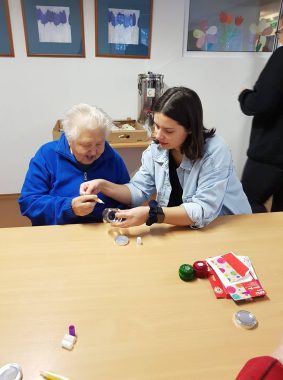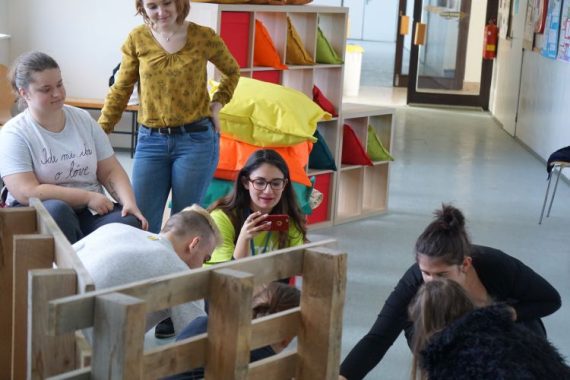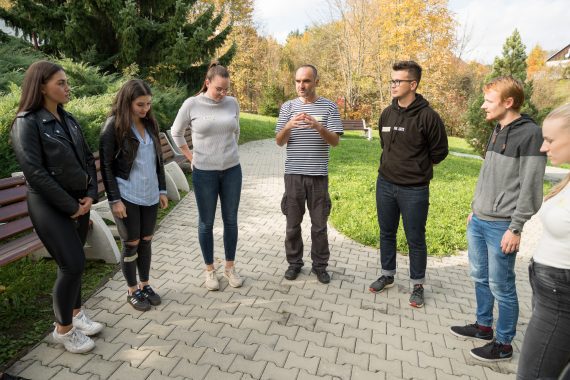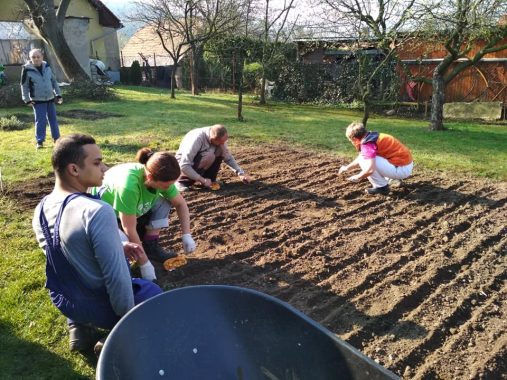Matej Bel University

Matej Bel University in Banská Bystrica (MBU) is a public university and in 2010 defended the status of a university. It is a member of the European University Association, provides quality tertiary and further education in line with the development of science and practice needs, and develops new knowledge through creative scientific and artistic research.
It offers a classical university spectrum of educational opportunities at all three levels and forms of study in pedagogical, social, economic, legal, political, humanities and natural sciences, international relations, economics, mathematics, and English and French-language studies. The MBU creates opportunities that link learning and practice through innovative mentoring, volunteering, non-formal education, and community work. It is the leader in Central Europe in developing the globally recognized educational service-learning strategy. It runs a Globsec Academy Center, a young leader incubator, supported by the world-class think tank of the same name and the Talent and Research Center. Education at MBU, which is assessed positively by both students and employers, is provided by professionals and practitioners.

MBU develops joint study programs and contacts with prominent foreign universities, where students can complete part of their studies. In addition to pedagogical, scientific, and artistic activities, a significant part of the creative activity of MBU represents the basic and applied research in cooperation with domestic and foreign institutions. MBU is successful in research projects of the EU Framework Programmes (FP5-FP7, H2020), particularly in the field of socio-economic and human sciences, and has the ambition to be the best Slovak university in international scientific cooperation in these fields.
MBU implements lifelong learning in various study programs and forms from the MBU Children’s University to MBU’s Third Age University. In their leisure time, a student can create a space for the various social activities provided by the sports clubs, artistic groups, and student organizations run at the MBU.
The primary mission of the MBU is to create and disseminate knowledge that protects, strengthens, and develops democratic and humanistic values and contributes to addressing societal challenges in the 21st century. In fulfilling our mission to be an open, dynamic and intercultural institution that provides education and develops science, research, innovation, culture, and the arts, it respects the fundamental values of freedom, democracy, the rule of law, respect for human rights, and sustainable development. One of the main aims of the university is to be a strategic partner with a significant degree of social responsibility, protecting the values of freedom, democracy, equality, cultural diversity, intercultural dialogue, respecting the principles of environmental protection in all its activities.

Matej Bel University has been working on developing voluntary student activities since 1998, particularly in cooperation with the regional Volunteer Centre in Banská Bystrica. The students organize numerous volunteer activities for the community and nonprofit organizations. MBU has been providing service-learning as one of the strategies of the engaged university since 2005. In 2016, MBU entered the international program directed by Clayss (Latin American Center for Service-Learning), supporting the development of service-learning at universities. The university’s rector officially confirmed Service-learning as a way a university can meet its third mission. One of the principles and values of MBU is: “MBU is engaged in the development of communities and region, in solving local and national problems and it actively contributes to the development of a civic society.”
In 2016, MBU took an active part in spreading the strategy in Central and Eastern Europe, and the main researcher was invited, as an expert, to take part in the conception of support for the region.
Since 2017, MBU has coordinated two projects directly focusing on the strategy: the research project The impact of the innovative strategy of service-learning on key competencies and civic engagement of university students supported by the Ministry of Education, Science, Research and Sport; and an Erasmus+ project Service-learning in higher education – support to the third mission of universities and of civic engagement of students. In the latter, MBU managed a consortium of partners from 7 countries. The project’s main objectives were to strengthen the capacities of HEIs related to the fulfillment of their third mission, enhance civic engagement of students through implementation of service-learning, and improve the quality and relevance of study offered in the field of implementation of service-learning strategy in higher education. As the project’s final activity, we organized an international conference, WHAT DOES IT MEAN TO BE(COME) AN ENGAGED UNIVERSITY, which took place from 13 to 15 July 2020. See more information here.
In 2021 we entered European University Volunteering and Service-learning Summer Program, in which we are managing projects with several community partners and universities in Europe.

Currently, MBU is involved in several national and international projects developing the ideas of engaged university, for example:
- Service Learning Upscaling Social Inclusion for Kids. The project SLUSIK aims to promote and support social inclusion by enhancing the acquisition of social and civic competencies and fostering knowledge, understanding, and ownership of values and fundamental rights in school leavers.
- Service-Learning as a pedagogy to promote Inclusion, diversity and Digital Empowerment. The project aims to intertwine the service-learning (SL) pedagogy with digital empowerment (DE) in order to promote inclusion (I) and diversity. SLIDE will be able to bring together students and academics from a wide range of European universities to draw on existing practices, share knowledge and develop best practices in and with the community, whereby all become teaching resources, problem solvers, and partners.
- e-Service Learning for more digital and inclusive EU Higher Education systems. The project focuses on e-Service-Learning as an innovative pedagogical approach based on experiential learning within the context of HE.
In all of these projects, we are engaging scholars and students in community activities and community-based research based on the ideas of the engaged university.
